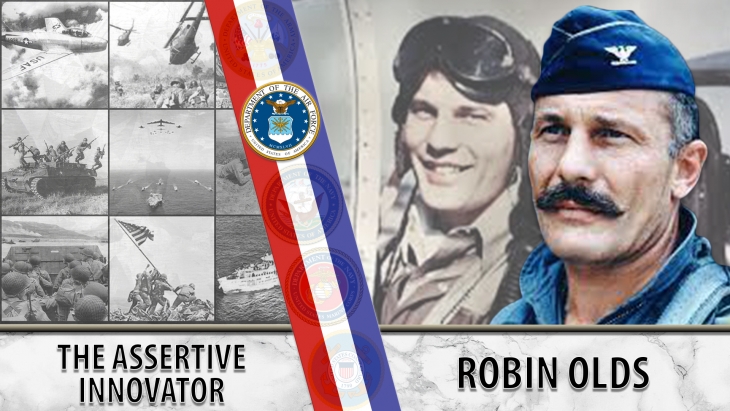
Robin Olds, known for his brash personality, became an endearing figure thanks to his leadership, forward-thinking in aerial warfare and love for fellow Air Force pilots.
For Robin Olds, aviation was in his blood. Born in July 1922, Olds’ mother died when he was four. He was raised by his father, a World War I flight instructor, who gave eight-year-old Robin his first taste of flight in an open-cockpit biplane. Four years later, young Olds committed to attend the U.S. Military Academy – also known as West Point – to become a military aviator. After completing high school and prep school, Olds attended West Point where he became a renown offensive and defensive tackle on the football team. In 1942, he was awarded All-American honors. Olds graduated in 1943 and received his pilot wings before commissioning as a second lieutenant in the Army Air Forces.
After completing additional training in California and Arizona, Olds was assigned to the 434th Fighter Squadron to fly missions in the European Theater. This is where his famous brashness emerged. During the war, Olds proposed the idea that 70 P-51 fighter planes armed with 500-pound bombs would be more effective and precise than 1,000 heavy bombers. Olds’ precision bombing idea was rebuked by everyone around him. He demonstrated proficiency as a combat pilot after flying 107 missions, becoming an ace after scoring 13 aerial victories and destroying 11.5 grounded enemy aircraft. In 1945, Olds was promoted to major.
When the war ended, Olds became one of the first Air Force jet pilots after being assigned to the first Lockheed P-80 jet squadron. Later, Olds received an assignment through an exchange program to serve as a jet fighter pilot with the Royal Air Force. After this, he commanded the No. 1 Fighter Squadron in 1948, where he remained until September 1949. He was the only U.S. exchange officer to command a Royal Air Force squadron.
By now, Olds’ brashness was well-known, and it came back to haunt him when his superiors – annoyed by his personality – denied his persistent request to fight in the Korean War.
After the Korean War, Olds grew discontent with the Air Force’s interpretation of tactical airpower being reoriented to delivering nuclear weapons. Olds advocated for stronger conventional air warfare capabilities like close air support, focus on air-to-air combat training and precision bombing because he believed the Air Force’s inattentiveness to conventional air warfare resulted in greater U.S. casualties.
In 1966, Olds returned to combat when he entered the Vietnam War as commander of the 8th Tactical Fighter Wing, stationed at Ubon Royal Thai Air Force Base, Thailand. There, Olds proved himself to be not just a brash personality but a leader respected by many. He revitalized the wing by reshaping his support staff, helping support groups solve their problems, encouraging camaraderie and improving his men’s morale.
However, Olds’ largest contribution to the war came when he enacted Operation Bolo, a plan to ensnare North Vietnamese MiG pilots into a trap to destroy them. The operation involved F-4 jets masquerading as slower F-105 Thunderchiefs by imitating their flight patterns to trick North Vietnamese pilots into attacking a “weaker” force. The plan worked. His contingent destroyed seven MiG-21 jets. Afterward, his wing earned 24 air victories, with Olds responsible for four of them, raising his total to 17 career air victories and making him a triple ace.
After the war, Olds’ legend grew when he became the well-liked commandant of cadets at the Air Force Academy. He was promoted to brigadier general in 1968. According to Howard Halvorsen, an Air Force historian, Olds was told during the Vietnam War that “he could only fly 100 missions in the Vietnam War. We now know his final mission was his 152nd, and as much as we know about the man, we can safely say he did not only kill four MiGs. Olds was almost certainly an ace in Vietnam, but being an ace mattered far less than leading his men and getting them home safely.
Olds also displayed this in 1972 when he offered to demote to colonel to implement better training and fighting techniques. He had outlined these techniques in a report sent to the Air Force chief of staff explaining why the Air Force’s kill ratio dipped as the Vietnam War progressed. His plan was rejected. So he retired in 1973.
In retirement, Olds continued to influence the Air Force. He produced many papers outlining his ideas on warfare. Many of his ideas were proven correct during and after the Vietnam War as the Air Force continued to develop with the advancement of new technology and ideas. Halvorsen went on to state that Olds “was so persistent during all of those inter-war years, constantly asking for better planes and better training, when it would have been better for his career if he had toed the line more often. Vietnam proved him correct, and the Air Force finally came to his way of thinking.”
Olds died in 2007 from congestive heart failure. He was buried in the U.S. Air Force Academy Cemetery with full honors.
We honor his service.
Writer: Raymond Lin
Editors: Katherine Berman, Julia Pack
Fact-Checker: Carl Wesseln
Graphic Designer: Grace Yang
Topics in this story
More Stories
Bernie Webber led one of the greatest Coast Guard rescues in history that was later chronicled in the book and movie, “The Finest Hours.”
As the events of 9/11 unfolded, Marine Veteran Robert Darling served as a liaison between the Pentagon and Vice President Dick Cheney in the underground bunker at the White House.
NASA astronaut Neil Armstrong was the first person to walk on the moon. He was also a seasoned Naval aviator.

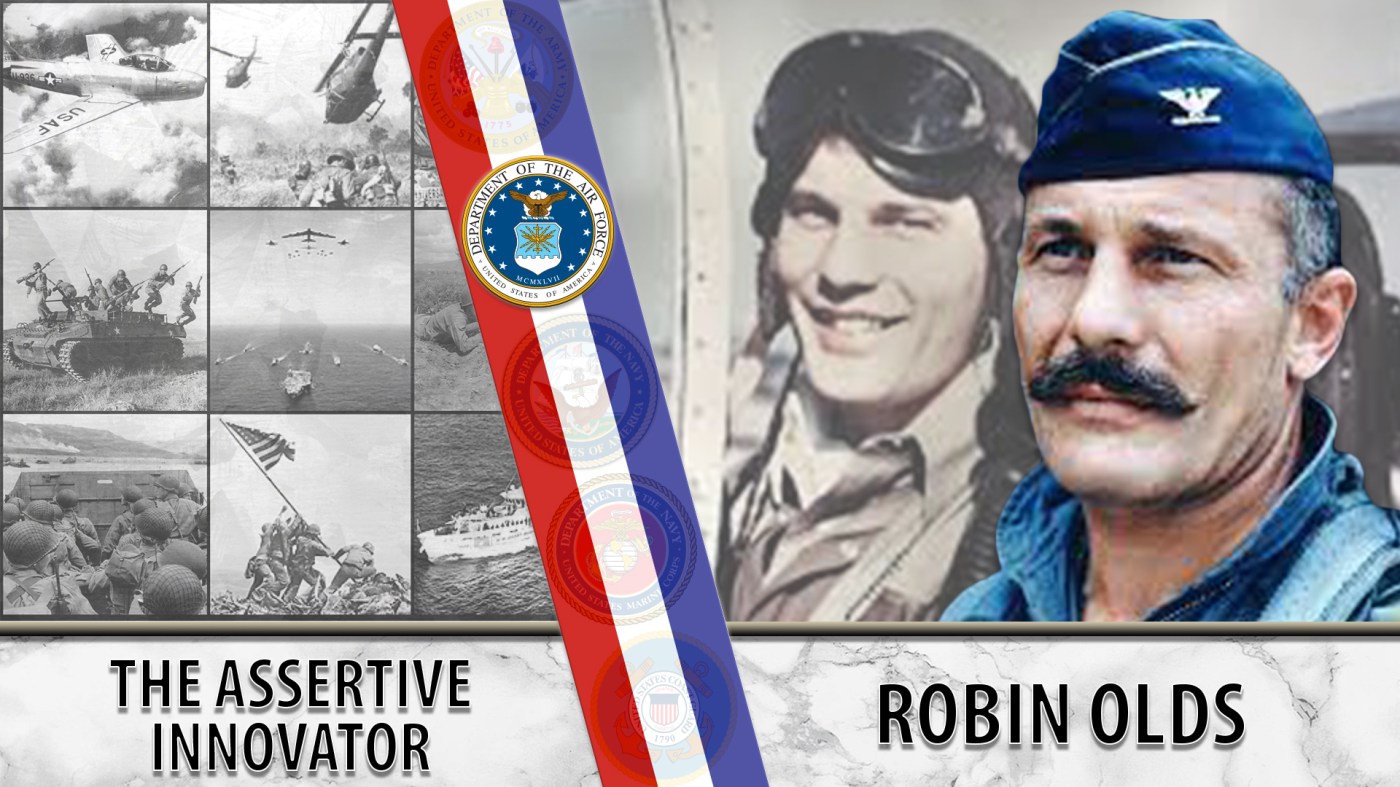
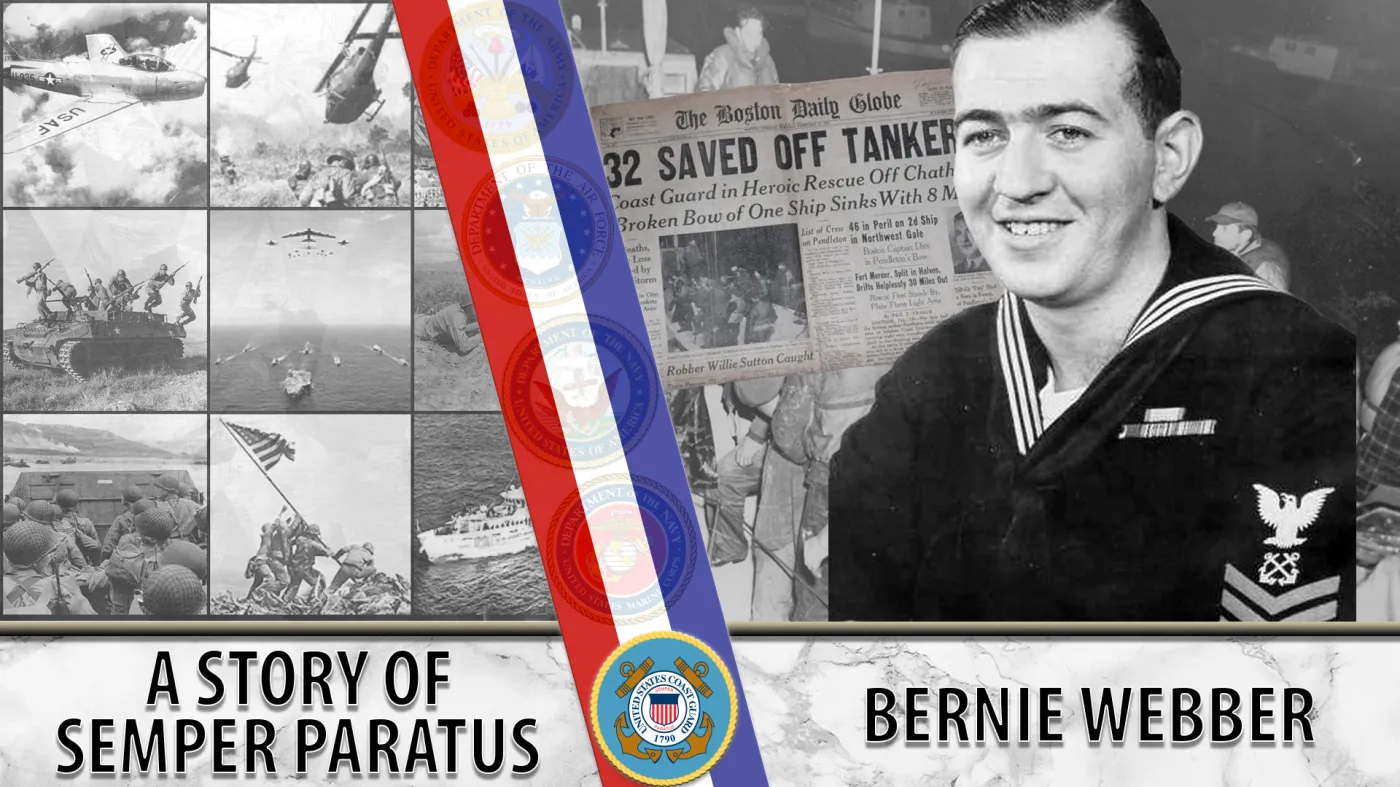
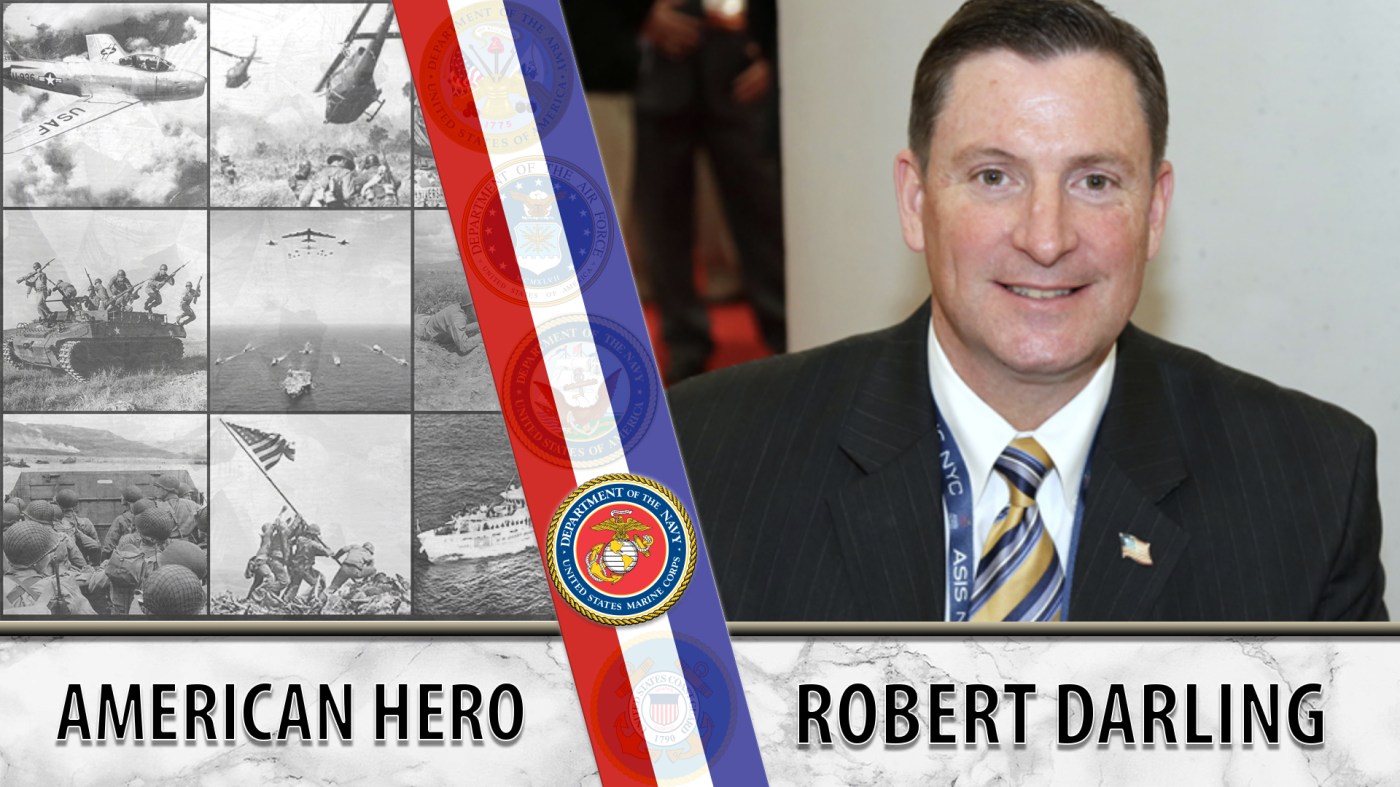
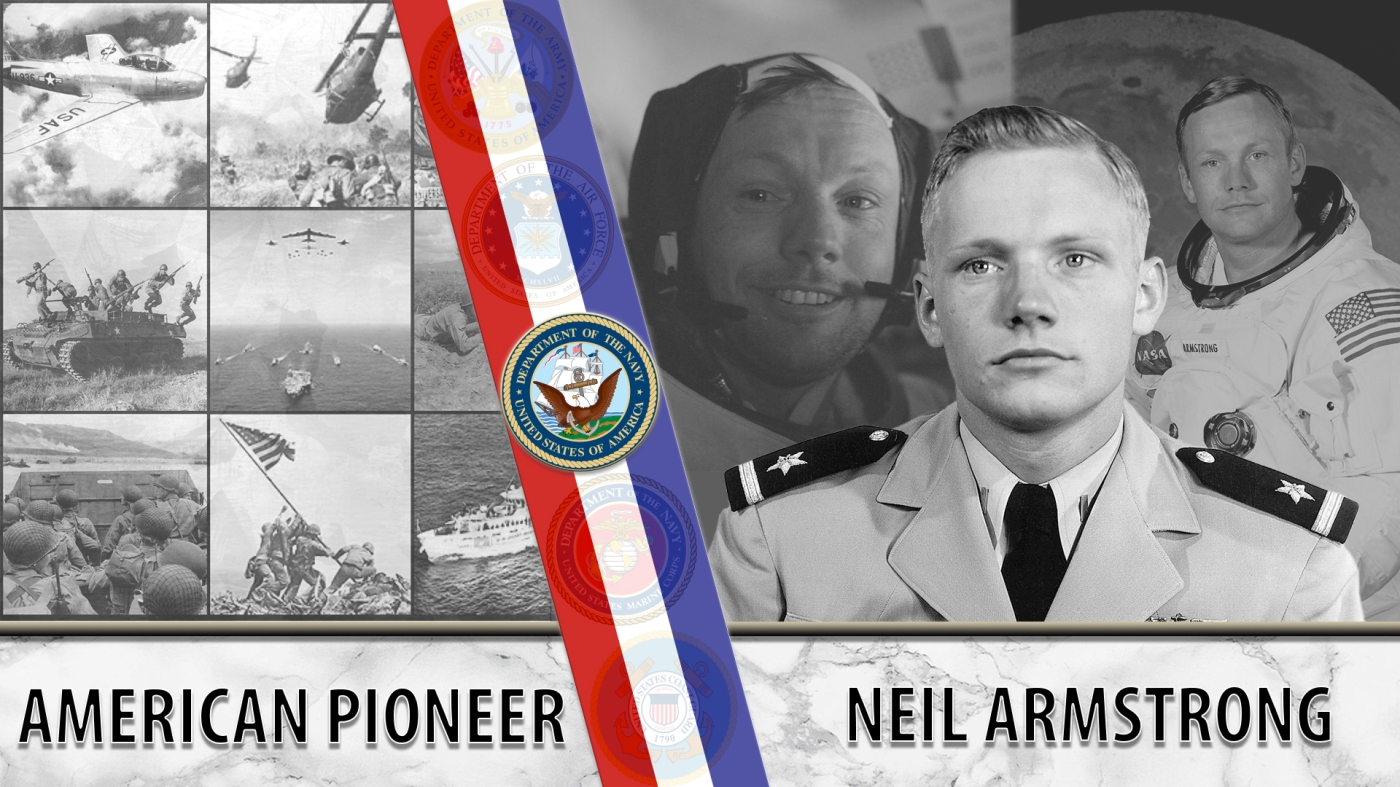


I was very fortunate to have worked the Operation Bolo aircraft as a Control Tower Operator at Ubon RTAFB. I remember when the aircraft returned to base and Colonel Olds called me and said, “Ubon Tower, request landing for sixteen of the world’s finest”. When they arrived back they did a banana peel type of break over the end of the runway and I had F-4’s everywhere but fortunately for me we got all of them safely back on the ground. The entire airbase celebrated their accomplishments that night at the Airman’s, NCO and Officer’s Clubs. I spoke with Colonel Old’s on many occasions and he was every bit of the way he’s often described in being brash, tough and extremely likeable. He often said that there wasn’t a single man who could whip his -ss on our base and believe me I think he was absolutely right. It was a hard day for me when I learned of Robin’s passing and he’ll always be a true hero to me in every sense of the word. RIP Robin…you’ve earned it Sir!